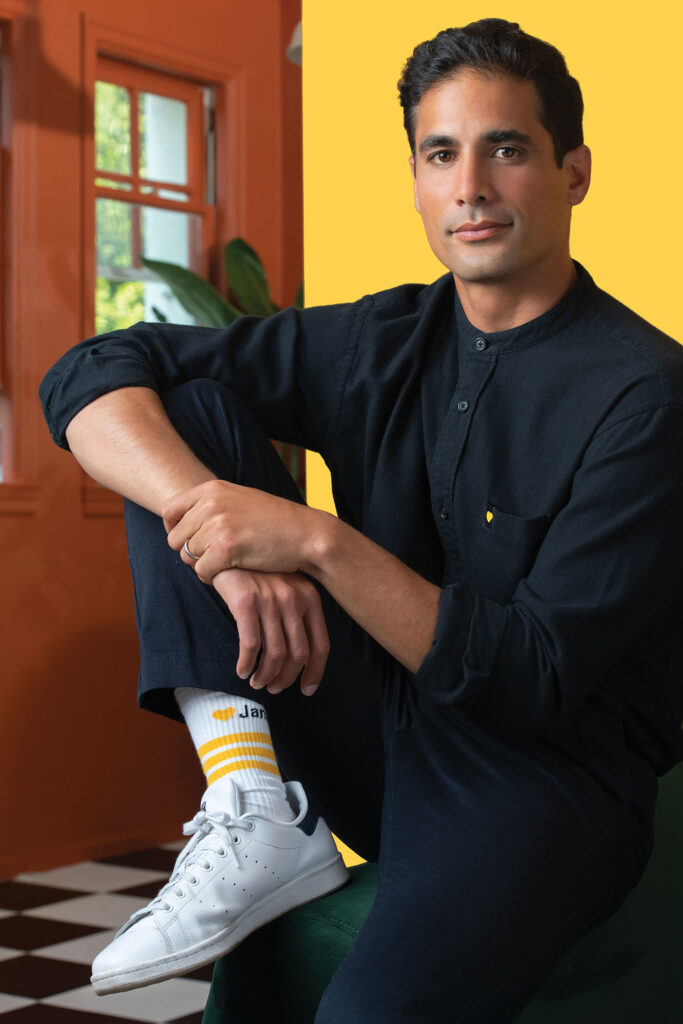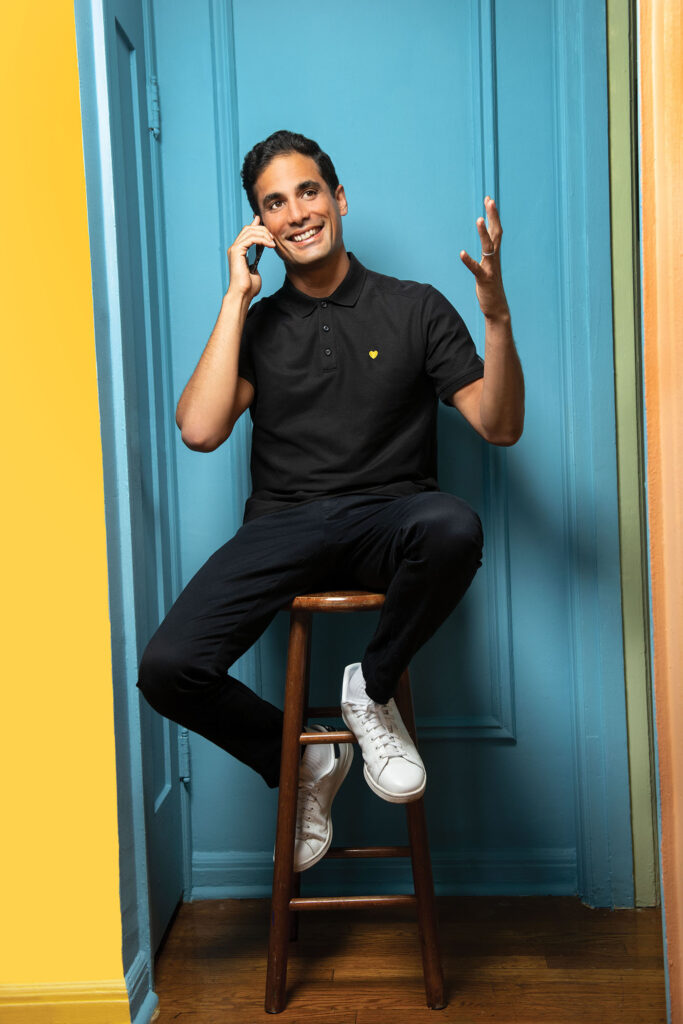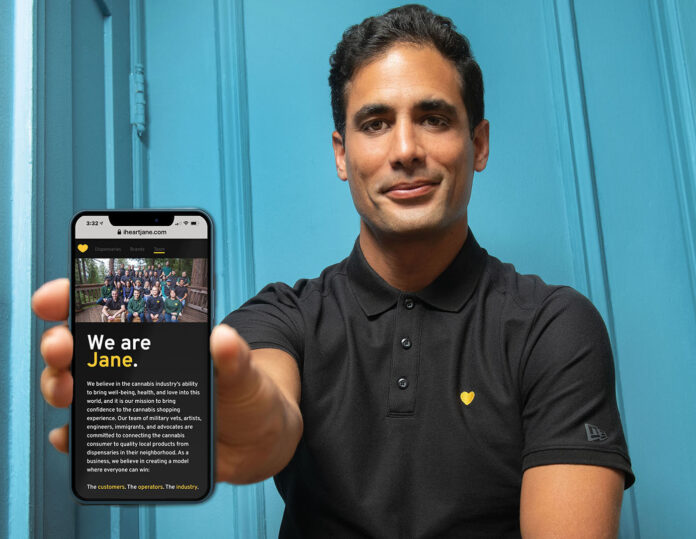Compared to every other legal retail industry, shopping for cannabis products can be a confusing, frustrating experience for consumers, who must wade through ever-changing menus, quirky payment systems, and half-baked information about brands and their products.
With the launch of IHeartJane.com in 2017, Jane Technologies aimed to improve the ecommerce experience for shoppers and retailers alike. The website allows consumers to access information about products available in their area, with filters to compare brands, effects, prices, reviews, and other fundamental knowledge. The technology engine and platform behind the site are something of a tech mash-up, with features similar to those found on Yelp, Spotify, and Amazon.
As millions of cannabis shoppers land on IHeartJane daily, Jane Technologies collects reams of data and information that provide insight into nearly every nook and cranny of the industry—most notably, consumers’ buying habits. Over the past two years, Jane reported a 135-percent increase in purchases, thanks in large part to the pandemic’s acceleration of ecommerce adoption. Today, according to the company’s data, more than 40 percent of cannabis sales in the United States originate online, up from 17 percent in 2019.
Analytics like these make Jane a valuable partner for the retailers, distributors, and brands that use the company’s data to help them understand a fast-growing, unpredictable marketplace and fine-tune business strategies.
Jane, too, is growing rapidly. “There’s never a dull moment in this industry, I’ll tell you,” said co-founder and Chief Executive Officer Socrates Rosenfeld. “First and foremost, we’re growing the team. We’re close to opening up Canada with the largest retailer in the country, and we’re about to unlock the online ordering integration for Leafly. I’m also in the middle of raising our Series C round [of funding]. It’s an exciting time at the company.”
From Afghanistan to Santa Cruz
Of all the groups that have worked toward cannabis legalization over the years, military veterans have been some of the most powerful activists and deserving patients. Veterans organizations tout the medicinal and therapeutic value of the plant for treating post-traumatic stress disorder, depression, pain, and other common ailments soldiers, sailors, airmen, and marines face as a result of active duty.

As a former U.S. Army officer who was deployed to conflicts around the world, Rosenfeld is all too familiar with some of the more unfortunate consequences of military service. “I was very fortunate to go to West Point for college, but it was not an easy experience for me,” he said. “I had no real understanding of what it meant, going into the military and becoming an officer.”
What it meant, he discovered, was maneuvering an Apache helicopter through conflict zones. During one patrol around Baghdad, he experienced an epiphany. “I was thinking to myself, ‘Is this the best way to bring peace into the world?’ And I couldn’t really answer with conviction that it was the best way, so I decided to get out of the service and find another path to help people.”
That new path led Rosenfeld to Guatemala. There, he worked as a project manager with a micro-finance bank that was assisting some of the poorest of the poor in Latin America to open businesses. The goal, he said, was to develop entrepreneurs who would create much-needed jobs and income for their communities.
The experience inspired him to seek a graduate degree from the Sloan School of Management at Massachusetts Institute of Technology. The stress school added to his existing struggle with conflicting emotions and PTSD became too much to handle. At his wife’s suggestion, he reluctantly tried cannabis to help him sort everything out.
“Coming back home was really important for me because it forced me to process a lot of stuff that I had ignored throughout my military career, where you’re trained to suppress normal human emotions,” he explained. “And I think that’s a lot of what post-traumatic stress is: the inability to process normal human emotion. Cannabis really changed my life and brought me that sense of self-empathy and non-judgement and allowed my natural human emotions to process. It gave me the opportunity to find this sense of homeostasis where I could just be present with myself and my loved ones.”
Soon after that realization, Rosenfeld, his software-guru brother, and several of his graduate school peers began brainstorming cannabis business ideas. “I thought maybe we could do something in the software space to help push this industry forward by helping consumers find products that help them,” he said.
Offline and online retail collide
After earning a master of business administration degree, Rosenfeld spent several years working as a McKinsey & Company consultant in Silicon Valley, where he managed projects designed to support retail brick-and-mortar operators that were fighting online behemoth Amazon for survival.
“How do you build a digital presence as J Crew or Wegmans or as a traditional retailer that has no software experience? What are they supposed to do?” asked Rosenfeld. “That was one issue I was solving. I was also serving clients that we called aggregators, but essentially they’re online marketplaces: Zappos, DoorDash, Grubhub, Airbnb. I studied all these aggregators, and what we realized was the way consumers shop for everything in this world is in specific patterns.”

As a massive online aggregator, Amazon was creating a “disintermediation of the retailer,” he explained. That is, if someone buys something on Amazon, they’re probably not going to buy that same product locally. Over the past twenty years, disintermediation has siphoned revenue and jobs from communities and consolidated consumer spending in the hands of a few online Goliaths. While Rosenfeld appreciates the value consumers see in companies like Amazon, he also sees the downside for communities and traditional retailers. For example, big technology companies like DoorDash and Grubhub claim to be supporting local restaurants with their delivery services, but that support comes at a price: The companies extract a large slice of revenue from the communities they serve in the form of fees charged to both restaurants and consumers. The fees typically range from 20 percent to 30 percent of each sale.
The result? Tech giants that typically make little to no investment locally prosper while “local businesses actually become more and more unprofitable using these marketplaces,” Rosenfeld said. “The majority of that money is being consolidated to one tech company, not dispersed across the local community. We wanted to solve that problem.”
When Rosenfeld and his brother Abraham co-founded Jane Technologies, they set empowering small businesses up and down the supply chain as one of their primary goals. They could do that, they reasoned, by enabling consumers to find products and retailers in a smooth, efficient, and gratifying manner.
“We said, ‘Where is Amazon not?’ Amazon is not really in the offline, brick-and-mortar world, and they’re certainly not in cannabis,” said Rosenfeld. “So, let’s use this burgeoning industry that was legal in Colorado and Washington at the time as an incubator for what the future of retail and commerce will look like globally outside this industry in ten years.”
A new paradigm
As Rosenfeld researched, surveyed, and analyzed the software infrastructure in the cannabis industry, he identified key challenges that demanded solutions if the infrastructure were to keep up with the pace of a fast-growing marketplace. At the time, consumers, retailers, and distributors used a mishmash of shopping, ordering, and payment systems that were only loosely connected to each other. Rosenfeld’s vision was to design a more streamlined, unified shopping experience that would have some of the same attributes and advantages as Amazon, but with one critical difference: Rather than cutting brick-and-mortar shops out of the equation, Jane Technologies would empower them to connect more directly and conveniently with customers.

“You had offline products sitting on store shelves, and there was no direct-to-consumer capability; there were no online payments,” he said. “So, we had to build an Amazon-like experience for consumers while also supporting and pushing the value back down to local communities. If we could solve that, we felt like we’d have something special.”
When Jane’s new service launched in Santa Cruz, California, in 2017, it landed with a thud. Not a single order was processed on the first day. Four years later, the company’s ecommerce engine processes more than $3 billion dollars annually for 2,000 stores across the U.S.
“We require very little, if any, work from our retail partners, and we can automate ecommerce through some very sophisticated machine-learning patterns,” Rosenfeld said. “What we’ve now created has given the cannabis consumer full purchasing power. They have curation, and they have convenience. For sellers—these brick-and-mortar businesses that in other retail verticals would no doubt be disintermediated by the DoorDashes or Amazons of the world—we’re now actually flipping that model on its head and pushing all that value down to the local communities.”
One of Amazon’s long-standing corporate principles is employees and executives should not focus on or even discuss competing companies. In 2013, founder Jeff Bezos explained why. “If you have a customer-centric culture, that cures a lot of ills,” Bezos told GeekWire. “Let’s say you’re the leader in a particular arena. If you’re competitor-focused and you’re already the leader, then where does your energy come from? Whereas if you’re customer-focused and you’re already the leader, customers are never satisfied. If you’re customer-focused, you’re always waking up wondering, ‘How can we make that customer say wow?’”
Rosenfeld has adopted a similar philosophy. “In terms of competition, I know it sounds cliché, but really we compete with ourselves. I think if we were to anchor ourselves on any other provider in the space, we wouldn’t be who we are and we wouldn’t be where we are,” he said. “For us, it’s really drawing inspiration from other tech companies that are doing some wonderful things in this world and competing with ourselves to see how good can we be, because our thesis is if we focus on what we do best and come from a place of love and respect for our customers, then the rest will take care of itself.”
It’s the data, stupid
“Every tech company is a data company whether they care to admit it or not,” said Rosenfeld. After all, he noted, the biggest technology companies on the planet, from Apple to Facebook to Amazon, collect data from their customers with every new product or service they offer. “The way Tesla organizes and captures data is they build beautiful cars, and the way Apple collects information is they build beautiful hardware and software,” he said. “But ultimately, because of this new digital age, data now is the real currency.”
After acknowledging the responsibility that comes with collecting consumer data and being transparent about it, Rosenfeld said companies also need to be cautious about where and how they use the intelligence they gather. “Number one, we have to be good stewards of that information and protect the integrity of that information,” he said. “And we have to provide value back to the users who are sharing that data with us and create real value for them.”

One of the ways retailers and brands use consumer data is to build more customized customer profiles in order to tailor shopping experiences. “We have personalization on our menus where, if I am not an edibles consumer, I shouldn’t be seeing edibles at the top of the menu. I should be seeing flower, which I enjoy more. And vice versa,” Rosenfeld said. Similarly, Jane’s algorithms are designed to recommend products based on what millions of other consumers with similar profiles buy. “We are leveraging information to provide a very curated and customized personal experience on a product that I think is extremely personal to the individual.”
On the retail side, Jane’s platform can recommend products that are popular based on both historical data and real-world live consumption data. “We are able to provide information based on live data about how people are consuming products, how much they’re paying, how often they come back,” said Rosenfeld. “So, now we’re arming and empowering our retail partners with smart information so they can carry the right products to better serve their local communities. Ultimately, that leads to higher conversion rates, basket sizes, and more revenue. It’s a win-win.”
For brands, the software provides critical insight about how customers shop for products and make buying decisions. “Go talk to any brand and ask who their customers are, and they don’t really know because [consumers] are actually the dispensary’s customer, right? The dispensary has access to that information, but maybe they don’t share it with the brand,” he said. “So, now we have an online platform and can share that information back to the brand.”
Working with more than 200 brands nationwide, Jane collects and shares information about buying habits including where the customer came from; whether they clicked on an ad; whether they are budget shoppers; whether they “bundle” products with complimentary products from the same brand or different brands; whether they buy pre-rolls, tinctures, or mints, and on and on. “These are all things brands need to know in order to survive,” Rosenfeld said. “Data and information are the only way we’re able to tell them the truth.”
Eyeing the Future
As a resident of Santa Cruz, Rosenfeld finds himself in a prime location to see both the past, present, and future of the industry. The Northern California beach town historically has been a hub for cannabis entrepreneurs, brands, and innovative products.
“The state of California serves such a wonderful purpose for the broader industry, and this is where brands will emerge,” he said. “I grew up on the East Coast and I love that area of the world, but it’s going to be pretty rare for a brand to come out of Massachusetts and go nationwide. Absolutely, it will happen, but I think in California there’s an energy that attracts creative minds.”
Despite his “California-as-a-hub” notion, Rosenfeld is very aware of what’s going on in other regions. When Jane enters a new marketplace, he looks for trends that indicate the market will be healthy in the near term and the longer term. He points to Illinois as a big success story in making the transition from medical to adult-use. “I think that’s largely a mix of large multistate operators moving in, but also preserving local retailers as well, letting brands emerge, not giving out too many licenses like you’re seeing in some other state markets or allowing oversupply to exist where the bottom falls out and you can’t build a healthy market,” he said.
He believes the intersection of technology and local offline commerce is the future, and he follows and analyzes companies like Alibaba to gain insight about how the cannabis industry might be able to operate more efficiently. In doing so, he aims to influence other retail sectors as tech giants like Amazon and Google are siphoning off more and more revenue from smaller retail businesses.
“If you can marry the online world with the offline world and do that in an elegant way, you’re on the cutting edge of what ecommerce will be,” he said. “In my opinion, there is no better incubator for this than the cannabis industry here in the U.S., where you have billions and billions of dollars in demand and have it all in an offline, fragmented ecosystem. If you can be the connective tissue between the online and offline worlds, then you’re onto something I think will set precedent for other retail verticals globally to follow over the next decade.”













[…] product catalog before its developers wrote a single line of software code. Co-founder and CEO Socrates Rosenfeld believed the industry would eventually need to standardize the taxonomy of cannabis products in […]
[…] Technologies co-founder and CEO Socrates Rosenfeld turned his vision for cannabis ecommerce into a powerhouse platform that redefined how retailers, […]